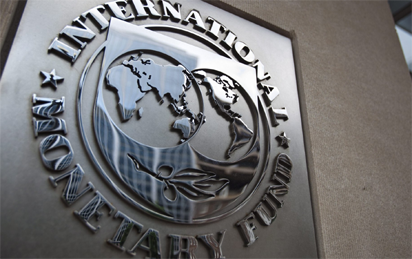As Nigeria’s economy continues its growth trajectory after plunging into recession last year following devastating disruptions by the COVID-19 pandemic on key sectors, the International Monetary Fund (IMF) has reeled out key policy options which the government could explore to sustain the growth and by implication, tackle headlong the poverty level in the country.
The Breton Woods institution, which had earlier projected that Nigeria’s economy would grow by 1.8 percent this year, believes that exploring the policy options will help reduce the nation’s inflation and protect poor households from further socio-economic hardships.
Specifically, the multilateral institution listed the options as including increasing the transparency and predictability of exchange rate management policies to reduce distortions in foreign exchange (forex) allocations to public and private sectors as well as ensure hitch-free access to forex on a timely and orderly manner and at an agreed rate.
In addition, the IMF also recommended that monetary policy priorities and objectives should be clearly defined with price stability as the primary goal.
It further clarified: “Resumption of naira-denominated open-market operations (OMOs) based on a transparent issuance schedule, and signal to markets that OMOs will use short-maturity securities to achieve price stability. Full and effective reopening of land borders for trade and strengthening regional co-operation to combat smuggling.
“Facilitation of imports for staple foods and medicines by removing them from the list of foreign exchange (FX) restrictions and replacing import bans and with tariffs that align with the ECOWAS Common External Tariff.
“Establishing mechanisms to monitor and report the Federal Government’s stock of Central Bank overdrafts to control the growth of the money supply.
“Full elimination of the petrol subsidy; and design of sequenced reforms to mobilise domestic non-oil revenue in a way that does not affect the economic recovery, including increasing excise taxes on harmful consumption goods, rationalising tax expenditures, removing loopholes in tax laws, and improving tax compliance by strengthening revenue administration”, IMF advocated.
In addition, the Fund also recommended that Nigeria should leverage on the National Social Safety Nets Programme (NASSP) to provide transfers to additional households, and temporarily increase transfers to current beneficiaries
This is even as it canvassed the need for the Nigerian government to complement the NASSP with the National Home-Grown School Feeding Programme (NHGSFP) to strengthen the food security of vulnerable households in 26 states and rapidly implement the World Bank-supported CARES project to support households, farmers and firms.
On its growth projection for the country, the IMF still maintained that Nigeria’s economy was expected to grow by 1.8 percent in 2021, if there is a rise in oil exports.
It stated: “Though there is high uncertainty about the outlook, the recovery would be driven by a rise in oil exports and in domestic demand. However, Nigeria’s recovery is expected to underperform those of other oil producers, and an unexpected shock to oil prices could threaten the modest growth projected.
“Moreover, high inflation and high unemployment exacerbate macroeconomic risks, and activity in the tertiary sector will not fully normalize unless COVID-19 is contained.
“By the end of 2021, Nigeria’s GDP is likely to approach its 2010 level, thus reversing a full decade of economic growth. GDP per capita is projected to continue declining because the economy is forecast to grow more slowly than the population”, the IMF predicted.






